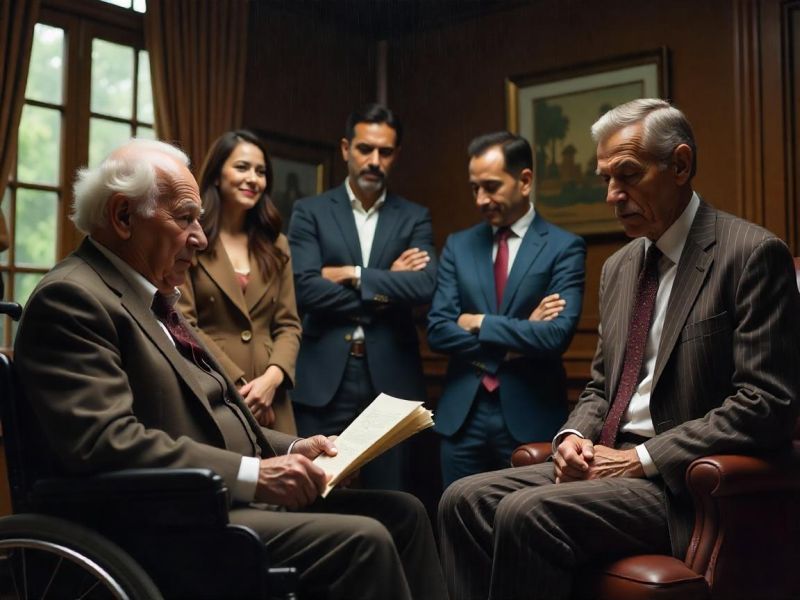When Inheritance Conflicts Arise in Families of People with Dementia
Marco Aurélio Gomes Veado
3 min read
•
June 5, 2025
Dementia doesn’t just affect the person diagnosed, it reshapes family dynamics, sometimes in painful and irreversible ways. One of the most emotionally charged issues that can arise is inheritance conflict. As cognitive decline (CD) progresses, questions of decision-making capacity, power of attorney, and property rights often become flashpoints among family members.
At a time when loved ones should unite around care and compassion, they can find themselves at odds, battling over finances, legal control, and legacy.

The Hidden Cost of Cognitive Decline
When someone is diagnosed with Alzheimer’s or another form of dementia, the immediate focus is usually on medical care and safety. But in the background, legal and financial matters demand urgent attention.
Who will manage the person’s bank account? Should the home be sold to pay for care? Has the individual updated their will while still legally competent?
Unfortunately, these conversations are often delayed until it’s too late. When legal clarity is lacking, family members may interpret intentions differently, leading to disputes that strain or even sever relationships. Long-simmering resentments can resurface, fueled by the perception of unfairness or secrecy.
Capacity and Consent: A Legal Grey Zone
A central issue in inheritance conflicts involving dementia is whether the person was mentally competent at the time key decisions were made. Questions like "Did Dad want to change his will?" or "Was Grandma coerced into signing over her house?" are not just emotionally fraught: they're legally complex.
Courts often rely on medical assessments and documentation to determine decision-making capacity. But families may disagree on the timing and interpretation of a diagnosis, especially in early-stage dementia, when cognitive abilities fluctuate.
The Role of Power of Attorney (POA)
Assigning a durable power of attorney (POA) can help prevent chaos, but even this solution can spark controversy. If one sibling is appointed as POA, others may question how finances are being handled, especially if caregiving duties or geographic proximity are uneven.
Transparency is essential. Keeping detailed records of financial decisions and involving all relevant family members in discussions can prevent suspicion and reduce tension.
Cultural and Emotional Dimensions
In many cultures, inheritance is about more than money—it's tied to honor, obligation, and memory. When a person with dementia starts to lose their voice in decision-making, families may begin projecting their own expectations or grievances onto the situation.
Caregivers may feel entitled to a larger share of the inheritance due to the sacrifices they’ve made. Others may feel excluded or blindsided if not kept informed. The emotional weight of the disease amplifies every decision, making conflicts harder to resolve.
Prevention Through Planning
The best defense against inheritance disputes is early planning. Ideally, legal documents such as wills, POAs, and advance directives should be completed while the person with dementia is still capable of expressing their wishes. Having these conversations may feel uncomfortable, but they are acts of love and foresight.
Legal professionals who specialize in elder law or dementia-related cases can help families navigate these sensitive issues with clarity and empathy.
Healing the Rift
If conflict has already erupted, mediation may be a more compassionate alternative to litigation. Involving a neutral third party can help families find common ground, focusing on what truly matters: honoring the dignity and legacy of the person living with dementia.
Conclusion
Dementia can fracture even the closest families, but it doesn’t have to. By recognizing the emotional and legal challenges early, families can protect not only assets but also relationships.
At MCI and Beyond, we believe that with education, empathy, and honest dialogue, it’s possible to turn difficult moments into opportunities for deeper understanding.
#mciandbeyond #dementiaawareness #elderlaw #caregiving #Alzheimers #familycare #inheritanceconflict #dementiacare
Sign up for our newsletter!
Get the latest information and inspirational stories for caregivers, delivered directly to your inbox.

